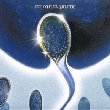|
|

Fato Brazilian music for the new century is what you will hear in Fato's third album, Oquelatá Quelateje. The album title, a made-up phrase with multiple meanings, shows up front the proposition of this group from the southern Brazilian state of Paraná. Innovation and tradition mix in a multicolored embroidery of sounds. The alliance of various musical traditions add to the melting pot that Brazilian music represents. Fato's music is most definitely unique, and that is precisely what the group had envisioned and accomplished so well with this prodigious album. Produced by Rodolfo Stroeter, who has also worked with Gilberto Gil and Mônica Salmaso, Oquelatá Quelateje is the work of a dynamic group of musicians. Their diverse backgrounds clearly exemplifies the richness of the music they make. Their songs have world appeal and are also unequivocally Brazilian. The band is Grace Torres (keyboards), Ulisses Galetto (bass), Zé Loureiro Neto (drums), Gilson Hidetaka Fukushima (guitar), Babi Farah (voice), Alexandre Nero (voice), and Priscila Graciano (percussion). Their music is a feast for your ears and mind. Intricate harmonies are the background for elaborate lyrics. The album opens with the overwhelming Valadares, a song about an island off the coast of Paraná. Composed by band bassist Ulisses Galetto, that track is most likely the essence of the album. It grabs you instantly with the introductory "rabeca" sampler. That countryside feeling suddenly gives way to electric guitars and the sound of handclapping and foot stomping. Your senses are now in total ecstasy. You are experiencing the old Paraná tradition known as "fandango." Fandango is a dance of Spanish origin and influenced by the Brazilian native Carijós. Using wooden clogs to keep the beat of the song and adding handclapping along with fiddles and "violas," the result is stunningly breathtaking. The fandango theme is again elaborated in the next track, Encharque. Linking different threads of Brazilian history and culture - slavery, dance, rhythm, "candomblé," and "capoeira" - Encharque once again reverberates with rhythmic pulsation. This odyssey of images and sounds continues track after track. With the polyphonous Vozes, Fato takes us to a time that is yet to come, a time of harmony and world peace conceptualized in music. The addition of a Balinese chorus is all very entrancing. With Kismet, the sound of Brazilian "tamborins" is sharp and stimulating. The lyrics argue about what is normal is unequal. The last verse is a summary of life's quest: what can you do in order to live? Oquelatá Quelateje is an experience that goes beyond the music. The words are deep and rich in meaning, a true reflection of life. Whether conjecturing about human lives or one's destiny, Fato delivers its message with jubilation. For more information about this group, please visit its multilingual home page and enjoy their music. Copyright © 2000 Egídio Leitão
|
| © 2011 Luna Kafé |